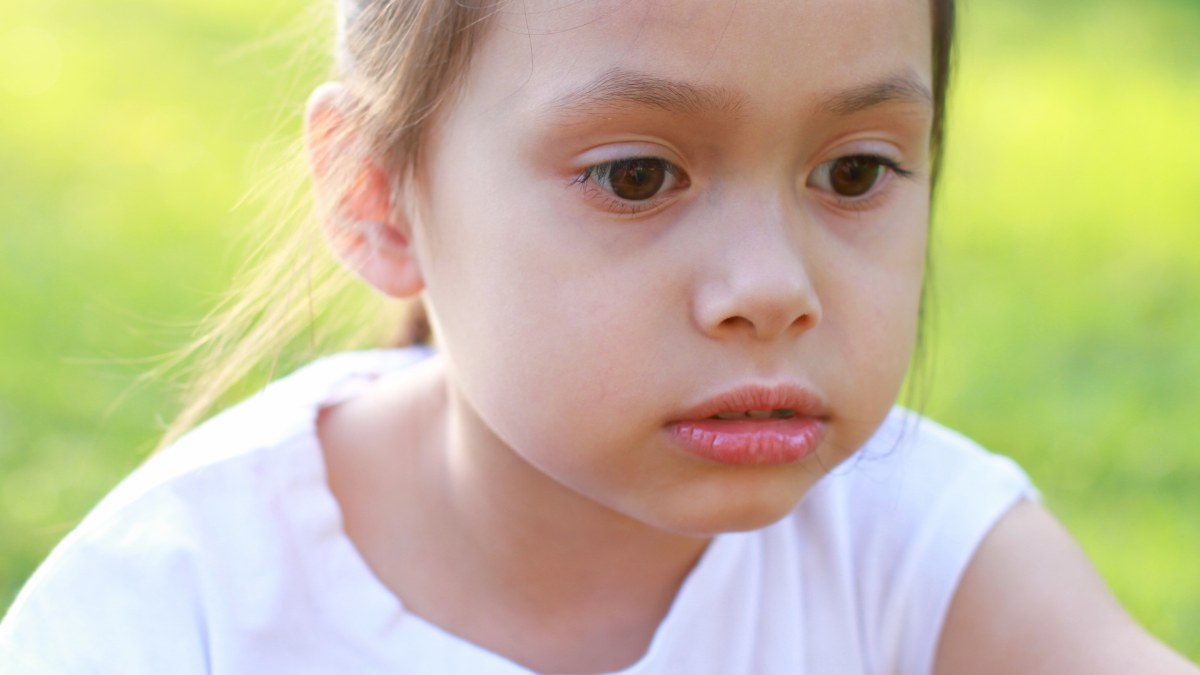Top 4 Benefits of Teenage Autism Test for Free
Discover the importance of a free teenage autism test. Early detection leads to timely intervention and support for teenagers with autism.
.avif)
Top 4 Benefits of Teenage Autism Test for Free
Understanding Autism in Teenagers
Autism is a neurodevelopmental disorder that affects individuals across their lifespan. It is characterized by difficulties in social interaction, communication, and repetitive patterns of behavior. Autism Spectrum Disorder (ASD) is a broad term that encompasses a range of conditions within the autism spectrum.
What is Autism?
Autism, also known as Autism Spectrum Disorder (ASD), is a complex neurological condition that affects how individuals perceive and interact with the world around them. It is typically diagnosed in early childhood, but some individuals may receive a diagnosis during their teenage years. Autism is a spectrum disorder, meaning that it presents differently in each individual, with a wide range of symptoms and severity levels.

Autism Spectrum Disorder in Teenagers
During the teenage years, individuals with autism may face unique challenges as they navigate the complexities of adolescence. They may experience difficulties in social interactions, communication, and understanding social cues. Teenagers with autism may also struggle with changes in routines, sensory sensitivities, and managing their emotions.
It's important to note that autism is a lifelong condition, and the challenges faced by teenagers with autism can continue into adulthood. However, with proper support and interventions, individuals with autism can lead fulfilling lives and achieve their potential.
Importance of Early Detection and Diagnosis
Early detection and diagnosis of autism in teenagers are crucial for several reasons. First and foremost, it allows for early intervention and support, which can significantly improve outcomes for individuals with autism. Early detection also helps teenagers and their families understand their unique strengths and challenges, enabling them to access appropriate resources and support systems.
Identifying autism in teenagers can be challenging, as some symptoms may overlap with typical teenage behaviors or other conditions. However, timely detection and diagnosis enable teenagers to receive the necessary support and accommodations to thrive academically, socially, and emotionally.
By understanding what autism is, recognizing its presence in teenagers, and emphasizing the importance of early detection and diagnosis, we can work towards a society that provides inclusive and supportive environments for individuals with autism.
The Need for Teenage Autism Testing
Identifying autism in teenagers can be challenging due to various factors. However, it is crucial to address this issue to ensure timely intervention and support. Here, we will explore the challenges in identifying autism in teenagers and the benefits of a free teenage autism test.
Challenges in Identifying Autism in Teenagers
Detecting autism in teenagers can be more complex compared to younger children. Several factors contribute to these challenges, including:
- Masking of Symptoms: Teenagers with autism may develop coping mechanisms to hide their difficulties, making it harder to recognize their symptoms. They may imitate social behaviors or mask their social and communication challenges, leading to delayed diagnosis.
- Increased Heterogeneity: Autism is a spectrum disorder, and the presentation of symptoms can vary widely among individuals. This heterogeneity makes it difficult to identify autism solely based on external appearances or behaviors.
- Co-occurring Conditions: Teenagers with autism often experience co-occurring conditions such as anxiety, depression, or attention deficit hyperactivity disorder (ADHD). These overlapping symptoms can complicate the diagnostic process and potentially mask the underlying autism.
- Lack of Awareness: Some teenagers may lack awareness of their own difficulties or may not have received proper education about autism. This can further hinder the identification process, as they may not seek help or understand the significance of their challenges.
Benefits of a Free Teenage Autism Test
Having access to a free teenage autism test can offer numerous advantages in addressing the identification and diagnosis of autism in teenagers. These benefits include:
- Early Intervention: Timely identification of autism allows for early intervention, which can significantly improve outcomes for teenagers. With an accurate diagnosis, appropriate support and therapies can be provided to help manage social, communication, and behavioral challenges effectively.
- Improved Quality of Life: Proper diagnosis and intervention can enhance the overall quality of life for teenagers with autism. By understanding their unique needs and providing targeted support, individuals with autism can develop skills, build relationships, and thrive in various aspects of life.
- Access to Resources and Support: A teenage autism test can help teenagers and their families connect with valuable resources and support networks. This includes access to autism-specific therapies, educational accommodations, support groups, and community services tailored to their needs.
- Enhanced Self-Awareness: Obtaining an autism diagnosis can provide teenagers with a better understanding of themselves and their strengths and challenges. This self-awareness can empower them to seek appropriate support, advocate for their needs, and develop strategies to navigate social and academic environments more effectively.
By recognizing the challenges involved in identifying autism in teenagers and the benefits of a free teenage autism test, we can work towards ensuring that individuals receive the support they need at the right time. Early detection and intervention play a vital role in helping teenagers with autism reach their full potential and lead fulfilling lives.
Recognizing the Signs and Symptoms
Recognizing the signs and symptoms of autism in teenagers is crucial for early identification and intervention. Autism is a complex neurodevelopmental disorder that affects social interaction, communication, and behavior. Here are some key signs and symptoms to be aware of when it comes to teenage autism.
Social and Communication Difficulties
Teenagers with autism often face challenges in social interaction and communication. They may struggle with understanding and interpreting social cues, making eye contact, and engaging in reciprocal conversations. Here are some common social and communication difficulties observed in teenagers with autism:
Signs and Symptoms
- Difficulty making and maintaining eye contact
- Trouble understanding nonverbal cues, such as facial expressions and body language
- Limited interest in socializing or making friends
- Difficulty initiating and sustaining conversations
- Literal interpretation of language, leading to misunderstandings
- Repetitive or unusual speech patterns
Repetitive Behaviors and Restricted Interests
Repetitive behaviors and restricted interests are another hallmark of autism in teenagers. These behaviors can manifest in various forms and may serve as a way for individuals with autism to self-regulate or find comfort. Some common signs and symptoms include:
Signs and Symptoms
- Engaging in repetitive movements, such as hand flapping or rocking
- Adherence to rigid routines or rituals
- Strong attachment to specific objects or topics
- Intense focus on narrow interests
- Resistance to changes in routines or environments
- Unusual preoccupations or fixations
Sensory Sensitivities and Challenges
Teenagers with autism often experience sensory sensitivities and challenges. They may be hypersensitive or hyposensitive to certain sensory stimuli, leading to difficulties in processing sensory information. Here are some common signs and symptoms of sensory sensitivities in individuals with autism:
Signs and Symptoms
- Overwhelm or discomfort in environments with bright lights, loud noises, or strong smells
- Sensitivity to certain textures, tastes, or clothing materials
- Avoidance of certain sensory experiences, such as crowded places or certain foods
- Seeking sensory input, such as spinning or touching objects excessively
- Difficulty filtering out background noise or distractions
- Unusual reactions to sensory stimuli, such as covering ears or avoiding physical contact
Recognizing these signs and symptoms can help parents, teachers, and healthcare professionals identify potential autism in teenagers. If you notice these behaviors persistently in a teenager, it is recommended to seek a professional evaluation for accurate diagnosis and appropriate support. Remember, early detection and intervention play a crucial role in improving outcomes and enhancing the quality of life for individuals with autism.
Types of Teenage Autism Tests
When it comes to testing for autism in teenagers, there are different types of assessments and evaluations available. These tests play a crucial role in identifying and diagnosing autism spectrum disorder (ASD) in teenagers. Let's explore the two main types of teenage autism tests: screening tools and diagnostic assessments, as well as the importance of professional evaluation.
Screening Tools
Screening tools are initial assessments used to identify individuals who may be at risk for autism. These tools are typically brief and can be administered by various professionals, including healthcare providers, teachers, and psychologists. While screening tools are not diagnostic, they help determine whether further evaluation is necessary.
Common screening tools for teenage autism include:
It's important to note that a positive result on a screening tool does not confirm a diagnosis of autism. It simply indicates the need for further evaluation through diagnostic assessments.
Diagnostic Assessments
Diagnostic assessments are comprehensive evaluations conducted by healthcare professionals, such as psychologists or developmental pediatricians. These assessments involve in-depth analysis of an individual's behavior, communication, social interactions, and developmental history. Diagnostic assessments aim to determine whether an individual meets the criteria for an autism spectrum disorder diagnosis.
Common diagnostic assessments for teenage autism include:
Importance of Professional Evaluation
While screening tools provide initial insights, professional evaluation is essential for an accurate diagnosis of autism in teenagers. Only trained healthcare professionals can conduct diagnostic assessments and interpret the results in the context of an individual's unique circumstances. Professional evaluation takes into account multiple factors, including observations, interviews, and clinical judgment.
It's crucial to seek a professional evaluation if you suspect your teenager may have autism. Early detection and diagnosis can lead to timely intervention and support, enhancing the teenager's overall well-being and quality of life.
Remember, autism tests should always be conducted by qualified professionals who specialize in diagnosing and treating autism spectrum disorders. They have the expertise to properly assess and interpret the results, providing the necessary guidance and support for teenagers and their families.
Seeking Help and Support
When it comes to teenage autism, seeking help and support is crucial for the well-being and development of individuals on the autism spectrum. Timely intervention, availability of resources, and collaboration among parents, teachers, and healthcare professionals play a vital role in ensuring a supportive environment for teenagers with autism.
Importance of Timely Intervention
Timely intervention is essential in addressing the unique challenges faced by teenagers with autism. Early detection and diagnosis of autism allow for the implementation of appropriate strategies and interventions. This can help teenagers develop essential skills, improve their communication abilities, and enhance their overall quality of life.
By identifying autism at an early stage, teenagers can receive specialized support tailored to their individual needs. Early intervention programs and therapies, such as behavioral therapy, speech therapy, and occupational therapy, can help teenagers with autism develop social and communication skills, manage sensory sensitivities, and navigate daily life more effectively.
Resources and Support for Teenagers with Autism
There are various resources and support available to assist teenagers with autism in their journey towards independence and self-fulfillment. These resources can provide guidance, education, and access to specialized services. Some key resources and support options include:
The Role of Parents, Teachers, and Healthcare Professionals
Parents, teachers, and healthcare professionals play a crucial role in supporting teenagers with autism. Collaboration among these stakeholders is essential for creating a supportive and inclusive environment.
Parents can provide unconditional love and support to their teenage child with autism. They can actively participate in their child's treatment plan, advocate for their needs, and seek appropriate services. Additionally, parents can communicate and collaborate with teachers and healthcare professionals to ensure consistency and continuity of care across different settings.
Teachers play a vital role in facilitating a positive learning experience for teenagers with autism. They can create individualized educational plans, implement effective teaching strategies, and foster an inclusive classroom environment. Collaboration with parents and healthcare professionals can help identify and address the specific needs of each student.
Healthcare professionals, including doctors, psychologists, and therapists, provide specialized assessments, diagnoses, and treatment options for teenagers with autism. They can offer guidance to parents and teachers, monitor the progress of the teenager, and make recommendations for appropriate interventions and therapies.
By working together, parents, teachers, and healthcare professionals can provide a comprehensive support system that empowers teenagers with autism to reach their full potential and lead fulfilling lives.
Sources
https://www.totalcareaba.com/autism/free-teenage-autism-tests
https://abacentersfl.com/autism-testing-for-teens-process
https://www.crossrivertherapy.com/how-to-get-tested-for-autism-as-a-teenager








.jpg)
.jpg)


%20(1).jpg)
.jpg)
